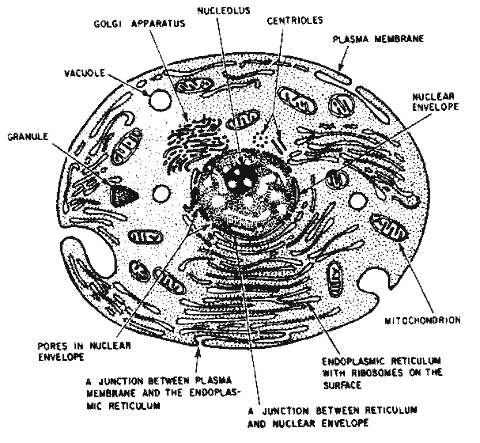 |
Science Frontiers ONLINE No. 130: JUL-AUG 2000 |
|
|
The Midi-Chlorians are with Us!
In the movie Star Wars, Episode 1: The Phantom Menace, Jedi master Qui-Gon Jinn explains the origin of the supernatural powers possessed by Jedi knights. It arises, he says, from microscopic lifeforms called chlorians" that dwell within all living cells and reveal the will of the Force.
Mitochondria are popularly seen as mere powerhouses within cells, with little influence on the organisms they inhabit. They are, it is believed, just the distant progeny of bacteria that invaded complex cells hundreds of millions of years ago. With only 37 genes in their arsenal, human mitochondria would not seem to pose any threat to humanity. After all, we have about 100,000 genes per cell. Of course, mitochondria do evolve separately from us, and this is a bit disconcerting. Could they be more than mere symbionts?
The midi-chlorians of the Jedi knights were "good guys", but our mitochondria sometimes seem to be working for an insidious alien Force. There is good evidence that they:
|
The first item (or "force") is the most disturbing. Mitochondria (with only 35 genes), it seems, can exercise vetoes over decisions by our own genome (with its 100,000� genes).
(Cohen, Philip; "The Force," New Scientist, p. 30, February 26, 2000.)
 The cells of higher organisms are busy places. One of this cell's mitochondria is indicated at the lower right, but there are several others in the sketch. They have their own DNA (mtDNA).
The cells of higher organisms are busy places. One of this cell's mitochondria is indicated at the lower right, but there are several others in the sketch. They have their own DNA (mtDNA).
|
Comment. It is disconcerting to realize that within each of our cells hundreds of alien entities, though helpfully supplying energy, are mutating and evolving in ways to enhance their fitness rather than ours. Like so many true parasites, mitochondria will not shrink from modifying their hosts (us!) to achieve their ends -- whatever they are. The Force seems to be with them!
Other Sites of Interest
|